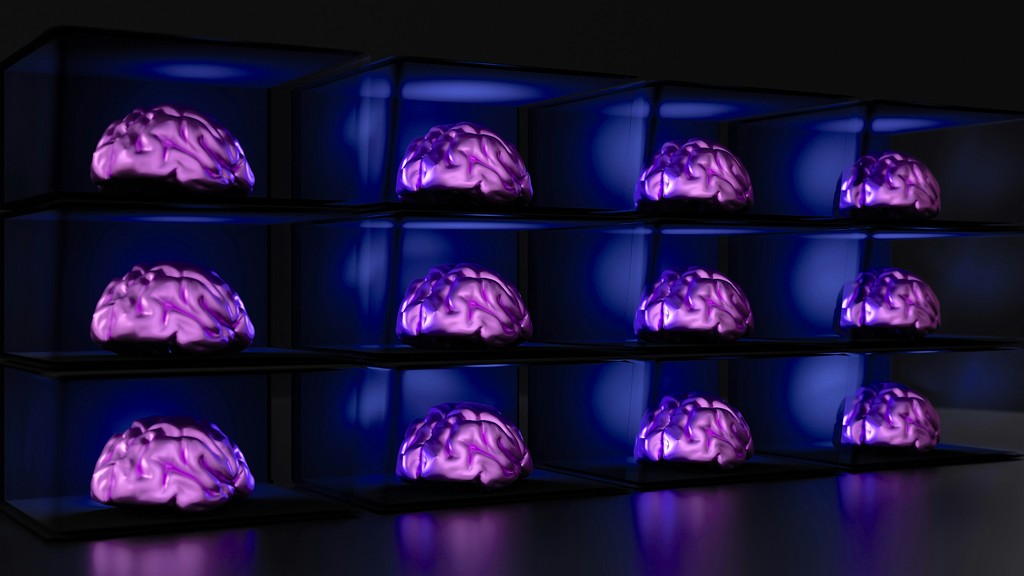
Ryan
Mar 26, 2024
Preserving Precious Moments: How Digital Memory Recording Helps Capture and Preserve Parents' Memories
The significance of memory and keeping memories safe
Busy schedules have become a norm in today's world, and as parents, we become so engrossed with day-to-day activities. It is, therefore, very easy to lose special moments in the middle of all this confusion, just as one would lose sand between their fingers. That is why the concept of memory keeping and the storage of memories has never been as relevant as it is at the moment.
In the contemporary world, people have many ways to document and share such precious moments of life. From smartphones with remarkable cameras to other gadgets such as memory recording devices, people are now in a position to make memorable photos that will make them smile next time.
Let us take you through the sphere of digital memory preservation and learn how it can assist you in saving and celebrating those special moments that you experience as a parent, whether you are just hopping on this crazy train of parenthood or are already experiencing the joys of being a parent. Keep reading to get the scoop on tips, ideas, and motivation for capturing and creating memories that will last a lifetime!
Advantages of digital memory recording for parents and families
One of the most significant advantages of digital memory recording is its convenience. All you need to do is press the button on your smartphone or camera, and you can record meaningful moments at any time and place. There is no need for extensive and clumsy dhttps://www.britannica.com/technology/digital-sound-recordinghttps://www.britannica.com/technology/digital-sound-recordingevices or the concern of having no more films for photography, as everything captured is saved digitally.
Another advantage is that one can easily upload these memories to friends and family. Parents can easily share their child's developmental stages and achievements through social media platforms or photo albums.

Digital memory recording also has an aspect of creativity. Parents can try various angle filters and editing features to make the photos and videos more presentable. It also enhances the artistic appeal and makes it a fun way for parents to tell stories to their children.
Digital memory recording helps parents capture all aspects of a child's life and that of the family, such as when the child starts walking, the child's birthday, school plays, and family trips, among others. Thus, these memories are stored and can be remembered and felt years later when one looks at them.
How to make memorable moments
Memories are one of the things that parents can offer to themselves and their children for a lifetime. They are a chest full of happy and pleasant memories we can revisit anytime. Below are some tried-and-tested ways to ensure you and your family have a good time and make good memories.
Be Present: In today's world, people are busy and often lose track of time. Try to be attentive during significant moments of your children's lives. All that remains is to hang up the phone, free one's mind, and be fully present.
Embrace Traditions: Family traditions help develop a feeling of consistency within a family. Food, games, or house decor can be done daily or only once a year, but these activities will become precious traditions stored in people's hearts and told to their children.
Capture Authentic Moments: Although the posed photos are good, the candid shots are usually more natural and authentic than the most beautiful staged photos. It is not a bad idea to capture some pictures when they laugh out of control or have a private conversation – these moments are priceless.
Create Memory Journals: Each family member should be encouraged to write their memory books to document the thoughts, experiences, and events that occur in the family at specific intervals.
This is not only a way of unwinding but also a great and sentimental way of expressing oneself through words and storing them in a book.
Involving children in the memory recording process
Thus, children can be engaged in memory recording, which can become a fun and memorable activity for every family member. Involving them in this activity allows you to preserve the moment and help the subject feel they belong.
Another way to engage the children is to give them the role of being "memory keepers." Give the children their cameras or phones to take pictures or videos of their daily lives. This enables them to view things differently, which in turn enforces creativity.
Reading books and telling stories to children may also be a fun method of ensuring that the children keep memories. Ask them to tell you about the trips they have taken with the family, a significant event, or even a routine outing they have gone on together. These should be documented in writing or voice recording so they can listen to them conveniently.
When children are creating memories, you give them the role of narrators in the family history. This will enhance the relationship between you two and help teach them the virtue of appreciation for life's blessings—something they will always cherish.
Passing down information to the next generation
This is a noble thing that parents can give their children, especially the future generation. It helps the children and grandchildren to know their past and their family and cherish the events in the family's life. Digital memory recording is an ideal way to record such moments, as it enables the storage of such moments in a digital format that can be easily shared and saved.
Thus, with the help of digital technology, parents can get a chance to create treasures that will not lose their value over time. They also help the generations that come after to see and even hear their fore-bearers in ways that were not possible before. These digital files can be easily saved on hard discs or cloud storage systems to prevent loss or damage to the files.
Thus, children's involvement in recording parents' memory processes contributes to their sense of belonging to their family's history and teaches them about storytelling and memory saving. Please help your child talk to their grandparents or other close family members about their lives or read stories the child has drawn or written about.
